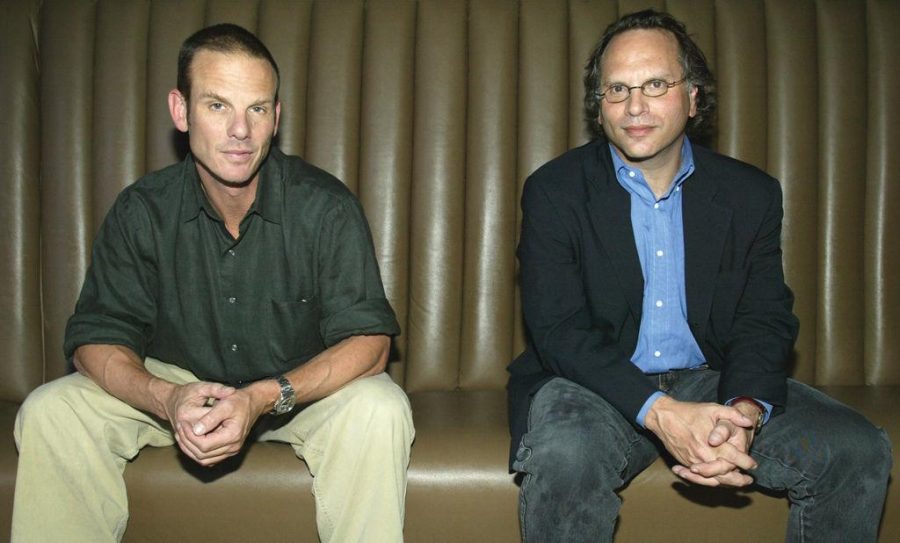‘Friday Night Lights’ just as relevant in current football climate
October 8, 2014
In 1988, H.G. Bissinger moved to Odessa, Texas, to study and report on the town’s people and politics. But his coverage of the local high school football team, the Permian Panthers, overshadowed the other aspects of the town.
His book, “Friday Night Lights: A Town, a Team, and a Dream,” profiled the team’s run to the state title game that year. The book follows coach Gary Gaines and several of the team’s higher profile players, while also painting a portrait of Odessa — where Panther football is life and the players are treated like celebrities.
“Friday Night Lights” debuted on the big screen 16 years later, starring Billy Bob Thornton as Gaines — two years before director Peter Berg brought it to the small screen on NBC. In the football-crazed town of Odessa, fans and parents scrutinize his every decision. Following an early-season loss, Gaines comes back to find “for sale” signs on his front lawn, sending a clear and threatening message.
Including Gaines, the film follows a few players on the team. There’s Boobie Miles, the heavily sought-after halfback recruit, who gets injured early, after being overplayed. The quarterback, Mike Winchell, deals with his own shortcomings on the field, often succumbing to the immense pressure. The other central player is the fullback Don Billingsley. Throughout the movie, Billingsley endures his abusive father and fails to find refuge on the football field.
The movie has more than its fair share of clichés and caricatures, but that doesn’t mean it’s without meaning. It’s always in the conversation of “the greatest sports movies,” among the likes of “Remember the Titans.”
But this is an unfair and facile comparison. “Remember the Titans” is about football and desegregation in 1971 Virginia, where racial barriers were knocked down on the gridiron. It serves as a period piece, painting a picture of a Southern state in the 1970s.
On the other hand, “Friday Night Lights” deals with issues such as domestic abuse, adolescence and general disillusionment that transcend any setting. That’s not to say that racism isn’t existent in the film. In fact, “Friday Night Lights” explores issues of race, but it’s not a film solely about race.
In light of recent news, “Friday Night Lights” becomes more meaningful. The film’s depiction of high school football culture raises questions about the effect it has on these young men. Furthermore, it presents these values as a catalyst of the NFL’s many shortcomings.
Some may say that it’s a big leap from high school ball to the pros, but the jump is becoming less radical. College football has become more like the professional game, where the term “student-athlete” might as well just be replaced with “athlete.” For top prospects, such as Florida State quarterback Jameis Winston, it’s merely a place to hone skills before the NFL — akin to minor league baseball.
What resonates with viewers, at least in this fiction, is that football is the most important thing. It’s shocking and entertaining to see teenagers thrust in the spotlight and in front of microphones. The way in which the teenagers are treated like celebrities is what makes the story worth telling. The message this sends is lucid: winning is the most important thing. Who’s to say this isn’t the case all over the country in 2014?
If the NFL has communicated anything in the last few months, it’s that teams are expected to win at all costs. The NFL’s failure to appropriately and diligently deal with the recent uproar concerning Ray Rice is evidence of this.
On Sept. 27, University of Michigan quarterback Shane Morris was thrown back into the game after stumbling off the field with a concussion. According to USA Today, Michigan head coach Brady Hoke made a statement the following Monday, explaining that “We would never, ever put a guy on the field when there’s a possibility of head trauma.” The University’s athletic director, Dave Brandon, has since issued an apology for the lack of communication.
Honest mistake or not, it raises questions that may not have been posed previously. It wasn’t long ago that concussions were reduced to “getting your bell rung,” with players immediately returning to play. Now, the public is beginning to question not only the game’s safety, but whether or not it’s moral to be a fan. Some might find it hard to justify watching their favorite team on Sunday, knowing that Player X abuses his children or that Player Y has been allowed to sustain numerous concussions.
Maybe I’m getting ahead of myself. But, even at its most basic level, “Friday Night Lights” elucidates the absurdly high esteem in which we hold football. While it may seem like another high school movie, 10 years later, “Friday Night Lights” still shows us that football isn’t the most important thing in life.
Well, at least it shouldn’t be.








